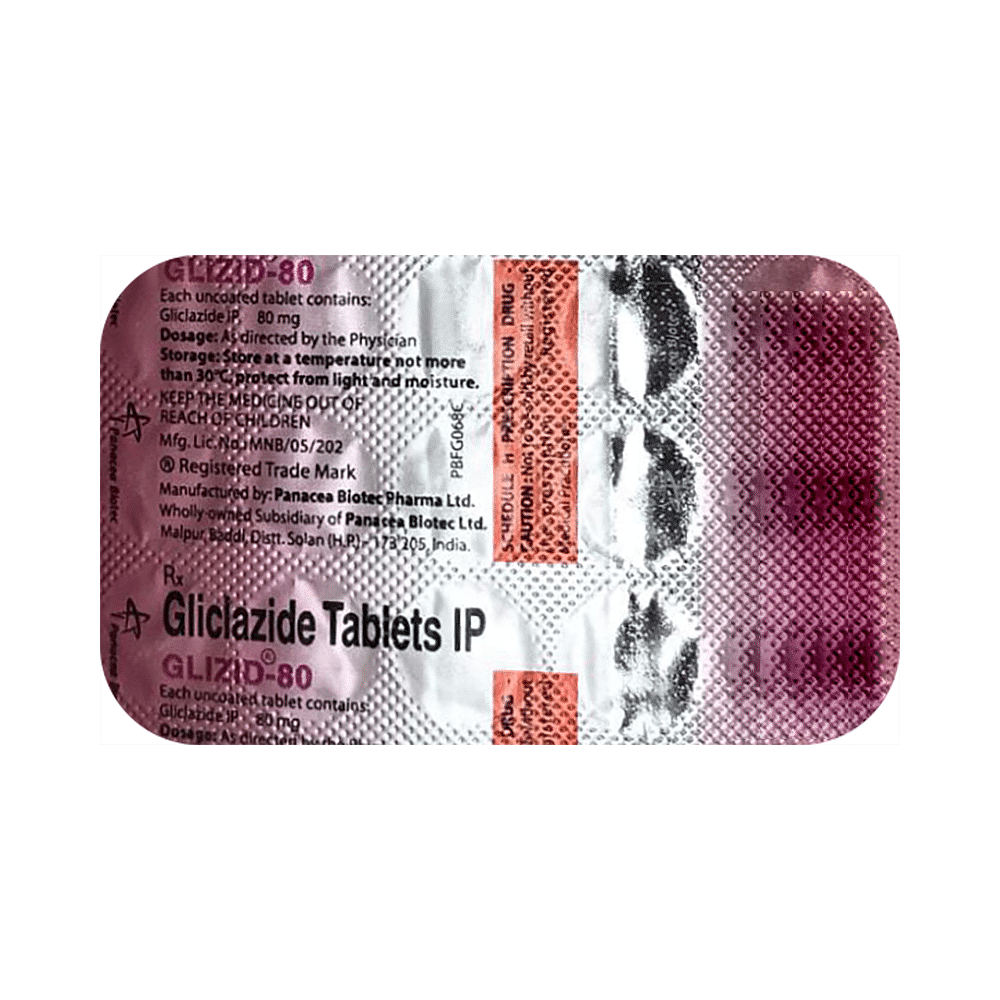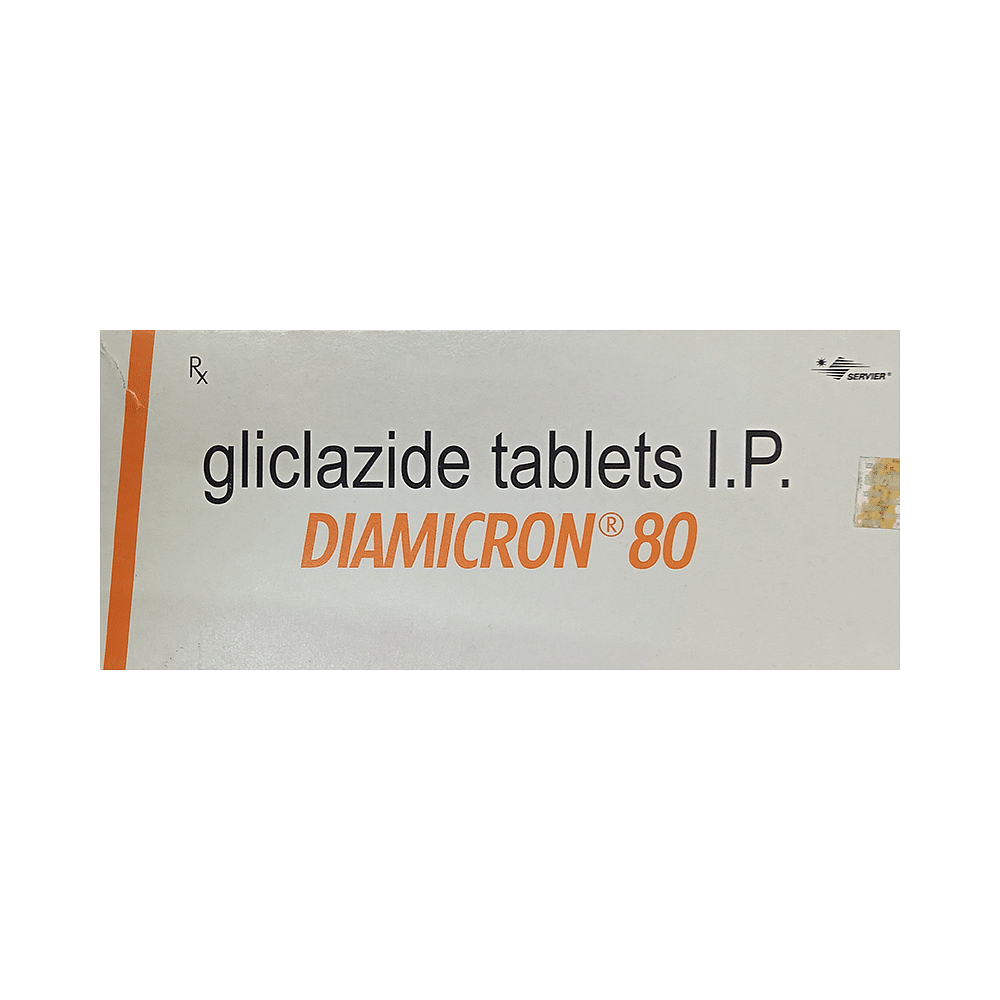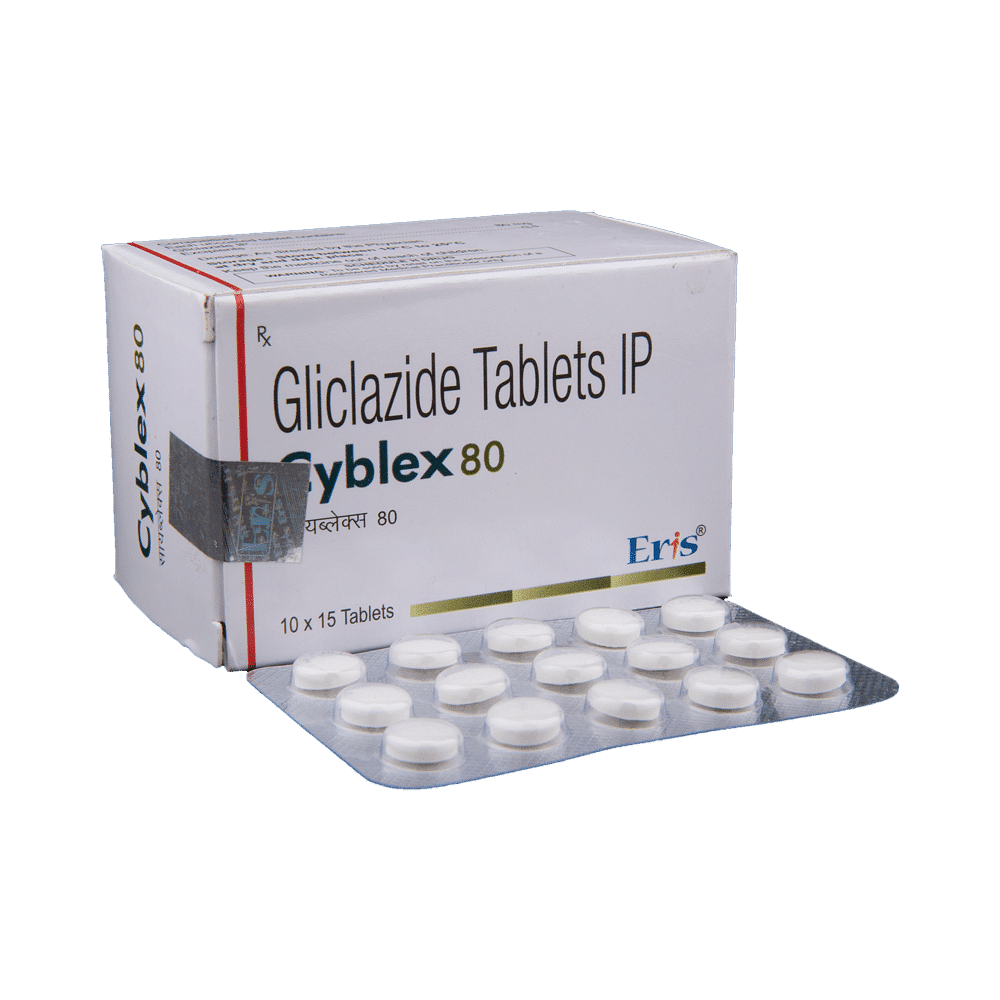
Dyken 80mg Tablet
Manufacturer
Kentreck Laboratories Pvt Ltd
Salt Composition
Gliclazide (80mg)
Key Information
Short Description
Dyken 80mg Tablet is used to treat type 2 diabetes mellitus in adults by controlling blood sugar levels.
Dosage Form
Tablet
Introduction
Dyken 80mg Tablet is a medication used to manage type 2 diabetes mellitus in adults. It belongs to the sulfonylureas class and helps control blood sugar levels, preventing serious complications like kidney damage and blindness. It may be prescribed alone or with other medicines and should be taken with food. Regular intake at the same time each day is recommended for maximum benefit. Common side effects include indigestion, stomach upsets, and low blood glucose levels (hypoglycemia). It is important to recognize and manage hypoglycemia symptoms. Avoid alcohol as it can increase the risk of low blood sugar levels. Consult your doctor if you have type 1 diabetes, diabetic ketoacidosis, severe kidney or liver disease, heart disease, thyroid disease, or hormonal conditions. Pregnant or breastfeeding women should seek medical advice before use. Regular monitoring of blood sugar levels and liver function is advised.
Directions for Use
Take this medicine in the dose and duration as advised by your doctor. Swallow it whole without chewing, crushing, or breaking it. Dyken 80mg Tablet should be taken with food.
How it works
Dyken 80mg Tablet is an antidiabetic medication that works by increasing the amount of insulin released by the pancreas to lower blood sugar levels.
Quick Tips
Take it shortly before or with the first main meal of the day (usually breakfast). Avoid skipping meals. Be careful while driving or operating machinery until you know how Dyken 80mg Tablet affects you. It can cause hypoglycemia (low blood sugar level) when used with other antidiabetic medicines, alcohol, or if you delay or miss a meal. Always carry some sugary food or fruit juice with you in case you experience hypoglycemic symptoms such as cold sweats, cool pale skin, tremor, and anxiety. Your doctor may check your liver function regularly. Inform your doctor if you develop symptoms such as abdominal pain, loss of appetite, or yellowing of the eyes or skin (jaundice).
Related Medicines

Glizid 80 Tablet

Diamicron Tablet

Cyblex 80 Tablet

Reclide Tablet

Hyglic 80mg Tablet

Delxide 80mg Tablet

Monoglide 80mg Tablet

Reclide 80mg Tablet

Glyred 80mg Tablet

Diatrol 80mg Tablet
Frequently asked questions
What is the optimal timing for taking Dyken 80mg Tablet?
Dyken 80mg Tablet should be taken before meals or exactly as directed by your doctor. Studies suggest that it works best in controlling post-meal high blood sugar levels when taken 30 minutes before breakfast. Therefore, if you are instructed to take it once daily, take it with breakfast in the morning accompanied by a glass of water.
Is Dyken 80mg Tablet equivalent to metformin?
No, Dyken 80mg Tablet is not the same as metformin. Although both oral medications are used to treat type 2 diabetes, they differ in their mechanisms of action. While Dyken 80mg Tablet increases insulin secretion by the pancreas, metformin improves the functioning and effectiveness of existing insulin in the body.
Can I take metformin and Dyken 80mg Tablet together?
Yes, Dyken 80mg Tablet and metformin can be taken simultaneously if prescribed by your doctor. Your healthcare provider may have recommended taking both medications to manage uncontrolled sugar levels. However, when used together, monitor for low blood sugar which can occur due to delayed or missed meals, increased physical activity, or concurrent insulin use. Adhere strictly to the instructions provided by your doctor to avoid such complications.
Is Dyken 80mg Tablet harmful to kidneys?
No, Dyken 80mg Tablet is not detrimental if you have normal kidney function. If you have a history of kidney problems, inform your doctor so that the use of Dyken 80mg Tablet can be evaluated. This assessment helps determine whether Dyken 80mg Tablet should be prescribed or started at a lower dose due to its primary mode of excretion through the kidneys.


